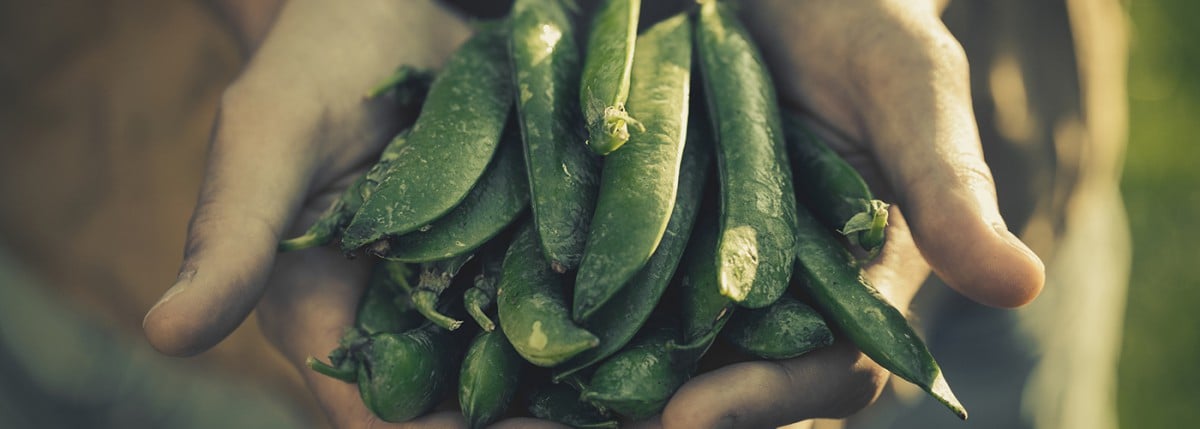From animal agriculture to the plant-based economy

With demand for plant-based products exploding, there are more and more opportunities for farmers to take advantage of consumers’ shifting tastes. Just as startups and scientists are looking for ways to transition meat production to new technologies, so too are organizations working with farmers to help them transition from animal farming to plant protein production.
Read on to meet two people spearheading these efforts. Farm Transformers’ Janabai Owens and Animal to Plant-Based Protein Exchange’s Jennifer Betit Yen gave us the inside scoop on what they do and why they do it!
Tell us a bit about who you are and about your organization.
Janabai Owens (JO): I’m Janabai Owens, Program Director at Farm Transformers. Farm Transformers was founded in the spring of 2017 to build sustainable, plant-based business solutions for farmers transitioning out of animal farming. Farm Transformers is working with farmers to understand their needs from the inside out and is building a cohesive model to provide practical advice, a clear path to capital, and information about new farming methods for those who want to transition away from animal farming.
Jennifer Betit Yen (JBY): I’m Jennifer Betit Yen, Founder of Animal to Plant-Based Protein Exchange (A2Px). I started A2Px in May 2018 to help supply meet demand, ethically and sustainably. A2Px is an agritech exchange that specifically enables small to midsize dairy and animal farmers to transition from low-return, animal-reliant farming to more lucrative, sustainable, and cruelty-free pulse crop farming. A2Px connects burgeoning plant-based food producers with a diverse and distributed food supply network enabling them to bypass international or monolithic supply companies.
What are some of the financial challenges facing farmers in animal agriculture? How can transitioning to producing other forms of protein address these challenges?
JBY: Over the past five years, farm incomes have fallen drastically. Dairy farmers are being hit the hardest. The price of cow’s milk is well below the cost of production. Both farmers and legislators keep turning to subsidies. Most economists agree subsidies won’t solve the problem, especially as more and more consumers move toward plant-based options. The plant-based milk industry’s growth projections are tremendous, but there is currently a supply gap. This presents the perfect opportunity to support our American dairy farmers in reimagining their milk production to meet this current and future market demand. Dairy farmers can continue to be dairy farmers, just not animal-based dairy farmers. This is the perfect trifecta: a win for the cows, a win for the environment, AND a win for the dairy farmers and their bottom line.
JO: Animal agriculture generally produces poor financial returns for the average farmer. Making money off raising animals for food is really an inefficient proposition economically. This becomes exponentially more so in an industrialized society where corporations and middle operators have so much leverage. Farmers are left undercapitalized and maxed out on debt. Many struggle daily to keep from losing their farms to bank debt, and that is while they are in business. Starting a new business requires capital and time, which most farmers do not have, making transitioning difficult for the farmers who want out. The growing demand for plant protein will drive the need for more production, and that same demand is creating a desire for novel proteins that will offer farmers more options and financial latitude when they enter the plant protein market. There is a great opportunity to do more outreach with farmers on the plant protein side.
What excites you most about the work you’re doing?
JO: Transforming farms excites me endlessly. There is so much whitespace. While we aren’t the first to consider this, we have taken concrete steps to make it a reality. Being early to this space has given me enormous creativity to construct scenarios that are beneficial to farmers, consumers, the planet, and of course animals. That’s fun and deeply challenges me to continue thinking outside of the box because these are important problems that need to be addressed immediately to make real and tangible changes. I am very proud that we have been able to bring the concept of farm transformation into the collective dialogue at the heart of this industry. Our farmer outreach and research has led to the building of a farm transition protocol that has already improved many lives and will continue on to do much more.
How is your organization’s approach unique?
JBY: Although we are a very young organization, we are already making a footprint. Farmers are approaching us to ask for assistance, and plant-based protein suppliers are indicating an interest and need in expanding supply channels. By focusing on the farmer and improving her or his economic welfare, A2Px can bypass politicized issues, achieving the same end result in much greater numbers. We can also help supply meet demand by creating a brand new cycle of lucrative and improved farming.
How do you illustrate the value proposition of transitioning to the plant-based protein economy?
JBY: The market opportunity here cannot be understated. As one example, the average annual cost per acre for pea farming in North Dakota in 2015 was $235.40. The expected income after debt service per acre was $312.00, creating a profit of $76.13 per acre. In contrast, for smaller herd dairy farming (an average of 77 cows per farm), the average profit per acre is $62.10. This example estimates a $14.03 per acre increase in profitability upon transition to pea farming.
Any parting thoughts?
JO: I believe that farm transformation is an exciting new opportunity to affect change on every level of the food system and rebuild it more humanely, more sustainably, and more equitably. The time has come for us to take on the problematic truth of factory farming and systematically transform it to build a better world for all.
Cheers to that! There’s no time like the present to create a better future.
Learn more about Farm Transformers and A2Px.

